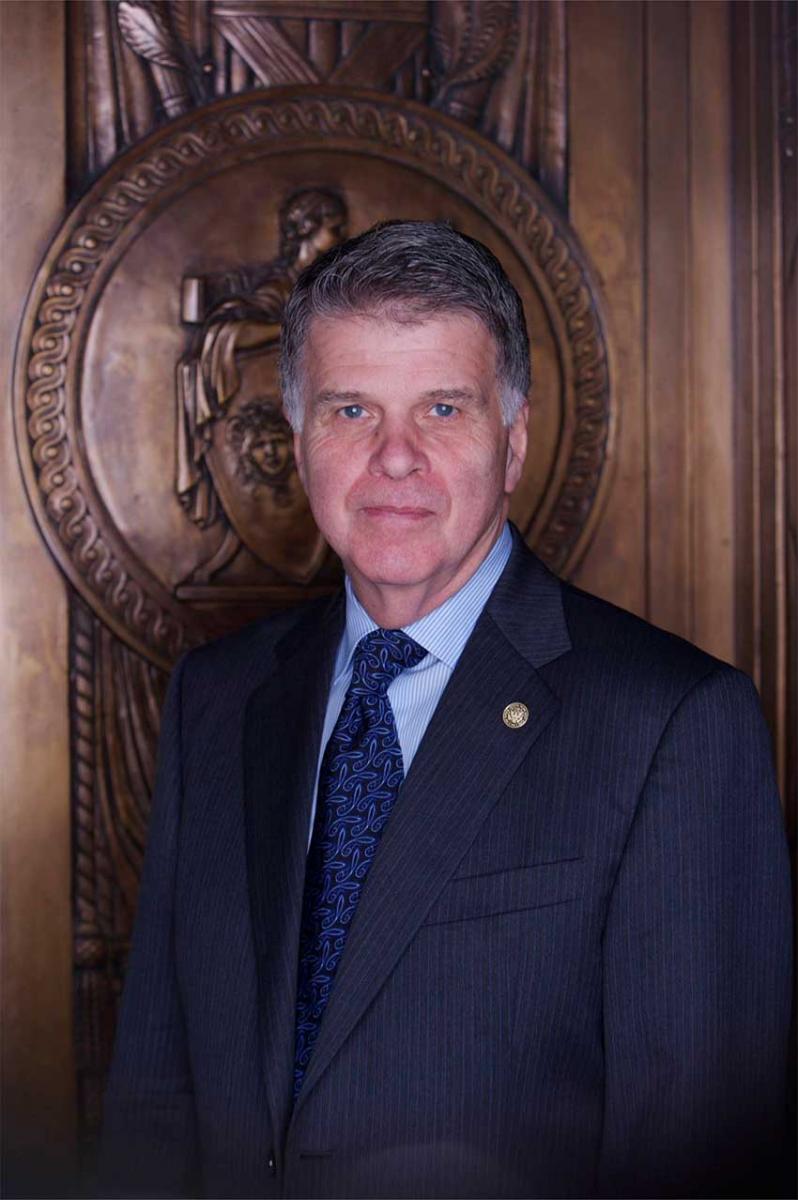
Archivist's welcome for Berlin Symposium: "A City Divided: Life and Death in the Shadow of the Wall"
Tuesday, January 14, 2014 at 9 a.m. McGowan Theater, National Archives Building
Thank you, Sheryl Shenberger.
Welcome, everyone, to the National Archives and the William G. McGowan Theater.
I'd like to extend a special welcome to Dr. Stephan Bress, First Secretary from the Embassy of the Federal Republic of Germany; Dmitry Dmitriyevich Cherkashin, Counselor from the Embassy of the Russian Federation; and Denis Vladimirovich Gonchar, Senior Counselor from the Embassy of the Russian Federation.
Today's examination of life and death in the shadow of the Berlin Wall marks the second collaboration between the National Declassification Center and the Central Intelligence Agency's Historical Review Program in declassifying records relating to Berlin.
The divided city of Berlin was the symbol—as well as the flashpoint—of the Cold War. From the end of World War II to the breaking down of the Wall in 1989, Berlin was seen as an outpost of the free West within the Soviet bloc.
Nearly two years after the construction of the Wall, President John F. Kennedy arrived in the city and expressed solidarity with the people of West Germany and West Berlin, declaring to the crowds that he, too, was a Berliner.
A quarter-century later, another President, Ronald Reagan, returned to West Berlin and challenged the Kremlin to "tear down this wall." Within two years, the wall came crumbling down, and it wasn't long before Germany was once again a united nation.
Last fall, the NDC released more than 11,000 pages of newly declassified Berlin-related documents dating from 1962 to 1986—the years between these two famous speeches. And just 10 days ago, the NDC released a July 1961 photo essay by James R. Florent titled " Flight to the West." Commissioned by NATO, this article is now public for the first time—nearly 53 years after it was created.
Today we will hear many of the human stories of struggle and resolve that come out of those crucial years between Presidents Kennedy's and Reagan's iconic speeches. The recently declassified and released documents reveal the human desire for freedom. As in a novel, the Wall played the part of antagonist to the people of East Germany. The Wall with its fences, wire, bunkers, and towers stood to hold back humanity in its flight to the West.
The story of the Berlin Wall and its importance in the Cold War is a fascinating one. You will hear of escape successes and failures, the use of balloons and the digging of tunnels, and the cat-and-mouse games between American and Soviet military liaisons in both East and West Germany.
At the back of the booklet you received for this symposium, you will see a list of 19 organizations that assisted in declassifying and contributing to the materials reproduced in it. That collaboration illustrates how the National Declassification Center brings together people, processes, and technologies within the Executive Branch declassification community to advance declassification and public access to historical records.
The documents held by the National Archives and other repositories represented here today tell a story of freedom. Prior to the U.S. entry into World War II in 1941, President Franklin Roosevelt defined freedom of speech, freedom of worship, freedom from want, and freedom from fear as fundamental human rights. That declaration of principles echoed through the Cold War and still resounds today.
Upstairs, in our exhibition galleries, we display some of the records that document those principles, and I hope you will take a look at them before you leave. Our newest exhibition, "Records of Rights," is anchored by the only copy of Magna Carta in America and explores how Americans have debated such issues as citizenship, free speech, voting rights, and equal opportunity. In the Rotunda, you have the opportunity to see four founding documents—the Declaration of Independence, the Constitution, and the Bill of Rights.
The documents in our custody tell many stories—of individuals, groups, and nations. The important work of document review and declassification ensure that we will continue to share those stories and new ones long into the future.
 The Archivist of the United States is the head of our agency, appointed by the President of the United States.
The Archivist of the United States is the head of our agency, appointed by the President of the United States.